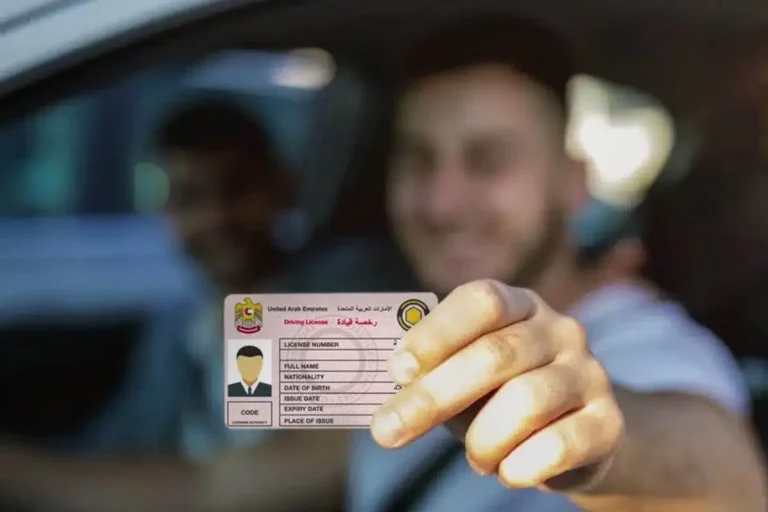
Have you ever wondered if there are any fines pending against your driving license? Whether you’re an experienced driver or just getting started, it’s essential to stay informed about your driving record and any outstanding fines. Ignoring these fines can lead to significant consequences, ranging from increased penalties to a potential suspension of your driving privileges.
We’ll go over all you need to know about “check driving license fines, why it’s important to keep track of them, and how to resolve them” in this extensive tutorial any issues efficiently. If you’re looking to stay on top of your driving record and avoid unpleasant surprises, this article is for you.
What is a Driving License Fine?
A driving license fine is a penalty imposed for violating traffic laws or regulations. These fines can arise from a variety of offenses, such as:
- Speeding: Exceeding the speed limit in designated zones.
- Parking Violations: Parking in restricted or illegal area.
- Expired Documents: Failing to renew your driving related documents or vehicle registration.
- Driving Under the Influence (DUI): Operating a vehicle while intoxicated by alcohol or drugs.
- Running Red Lights: Ignoring traffic signals and causing potential accidents.
The severity of these fines depends on the nature of the offense, and repeated violations may result in higher penalties or legal actions. It’s essential to stay on top of your fines, as accumulating them could lead to suspension or other legal consequences.

Why You Should Check Your Fine Regularly?
The answer is simple: proactive checks can save you time, money, and stress. Here are some of the key reasons why checking your fines is so important:
- Avoid Escalating Penalties: If you leave fines unpaid, they can increase over time. Late payments may result in higher charges or even legal action.
- Prevent Suspension of Your License: Multiple unpaid fines could lead to the suspension of your license, making it difficult to get around.
- Ensure Accurate Records: Sometimes, fines may be recorded incorrectly, and checking your record of driving can help you identify and rectify any mistakes before they become issues.
- Impact on Insurance: Accumulating fines or points on your record can lead to higher insurance premiums.
Regularly checking your fines helps you avoid these potential complications and keeps you compliant with road laws.
How to Check Your Driving License Fine?

Knowing how to check your fine is a critical step in staying up to date with your record. Thankfully, this process has become easier with the advent of online services and mobile apps. Here’s a simple, step-by-step guide to help you check your fines:
1. Visit the Official Website or Use a Mobile App
Most countries and regions offer an official website or mobile app where drivers can check their fines. Simply search for the official platform for your region. These websites typically allow you to access your record and view any outstanding fines or penalties.
For example, you may need to visit the government’s transport department site, enter your personal details, and log in to your account.
2. Enter Your Personal Details
To access your driving record and fines, you’ll need to enter key details like your driving license number, personal information, or registration number. This ensures that the correct information is pulled up and you are checking the right account.
3. Review Your Driving Record and Check for Fines
Once logged in, you’ll have access to your driving record, including any fines. Look for a section dedicated to fines, violations, or penalties. You can see the status of your fines (paid, pending, overdue) and details about each offense.
4. Verify Payment Status and Check for Outstanding Fines
If you have any unpaid fines, they will be clearly displayed in your record. Be sure to review the payment status. If you’ve already paid a fine, it should reflect as “paid” or “settled.” If the fine is pending, you may see an option to pay it online or learn more about the fine details.
Can You Pay Your Fines Online?
Yes, in many cases, you can pay fines online, which makes the process quick and hassle-free. Here’s how it typically works:
- Visit the Payment Portal: Most government websites and apps will have a dedicated section where you can perform an Online Driving License Check and pay fines.
- Enter Your Payment Information: After selecting the fine you wish to pay, you’ll be prompted to enter your payment information. This can include a credit card or bank transfer details.
- Complete the Transaction: Once the payment is processed, you will receive a confirmation, and your fine will be marked as paid.
Paying online offers the benefit of convenience. You can resolve your fines instantly without needing to visit a government office in person.
Common Mistakes When Checking Online for Fines

While checking for fines may seem straightforward, there are a few common mistakes that many drivers make. Here’s how to avoid them:
- Entering Incorrect Details: Double-check the information you enter. A simple mistake in entering your driving permit number can result in not finding your fines or accessing the wrong account.
- Overlooking Payment Status: Sometimes, fines are paid but not updated on the system. Be sure to confirm your payment status and reach out to authorities if something seems off.
- Missing Out on Late Payment Fees: If you’ve missed a fine payment deadline, you might not notice additional charges that apply. Ensure that you check if any late payment penalties are attached to your fine.
By being vigilant and following the steps carefully, you can avoid these common mistakes and ensure your fines are properly tracked.
What Happens if You Don’t Pay Your Fine on Time?

Failing to pay your fines on time can lead to serious consequences. Here’s what can happen if you ignore your fines:
- Increased Penalties
- License Suspension
- Insurance Complications
- Legal Actions
By staying on top of your fines and paying them promptly, you can avoid these serious issues and maintain a clean driving record.
How to Dispute or Contest a Fine?
If you believe a fine was issued in error, you can dispute it. First, review the evidence to see if there was a mistake. Then, submit a dispute through an online portal, explaining your case and providing any supporting evidence.
Finally, follow up to check the status of your dispute, as some regions may require extra documentation. Keep in mind, disputes are typically successful if you can present strong evidence that the fine was wrongly issued.
Additional Tips for Managing Your License of Driving

To keep your driving record in good standing and avoid fines, here are some useful tips:
Set Reminders: Use your phone or calendar to remind you when it’s time to check for fines or renew your license.
Maintain a Clean Driving Record: Follow the traffic laws and avoid committing offenses that could lead to fines.
Stay Informed: Familiarize yourself with the local traffic rules and regulations to ensure you are always compliant.
By following these steps, you’ll keep your driving record in top shape and avoid unnecessary fines.
Conclusion
Checking your driving license fine regularly is not just a smart move; it’s a necessary one. By staying proactive and paying attention to your driving record, you can avoid escalating penalties, suspension, and other serious consequences. Make it a habit to check for fines, pay them on time, and ensure your driving record remains clean.



